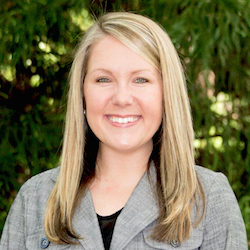
A new national database launching in October has the goal of making it easier for assisted living operators and capital providers to search for and compare communities from across the country.
Formation Healthcare Group, an Atlanta-based clinical consulting group that is a subsidiary of Formation Capital, and VisionLTC, a Raleigh, NC-based market analytics technology firm, have partnered to introduce an assisted living quality database that they liken to early efforts by the Centers and Medicare & Medicaid Services’ to collect and share data related to skilled nursing facilities.
“[CMS] started with a small data set of information and then, gradually, over the years, it’s grown, and we have Nursing Home Compare and those kinds data systems,” Trissie Farr, Formation Healthcare Group senior vice president, told McKnight’s Senior Living. “There’s nothing like that in the assisted living world.”
The companies said they have aggregated and standardized in one database assisted living community survey and regulatory outcomes and consumer rating data covering 75% of the country’s population.
 “For the first time, the seniors housing industry will have a single source for assisted living asset analysis, reputation evaluation, portfolio monitoring, operator benchmarking, clinical analytics, market analysis and consumer education, with a key benefit being that the burden is not on assisted living providers to submit the data,” Arick Morton, CEO of VisionLTC, said in a statement.
“For the first time, the seniors housing industry will have a single source for assisted living asset analysis, reputation evaluation, portfolio monitoring, operator benchmarking, clinical analytics, market analysis and consumer education, with a key benefit being that the burden is not on assisted living providers to submit the data,” Arick Morton, CEO of VisionLTC, said in a statement.
“We’ve categorized the citations so you can see where areas of concerns are within the different assisted living facilities based on some of the citation standardization work that we’ve done,” Jessica Curtis, Formation Healthcare Group vice president of clinical systems and analytics, told McKnight’s Senior Living.
Most of the information already is publicly available through state websites and other sources, she said, although the general public may not always know where to find it.
 “Formation Healthcare Group offers a State and Regulatory Warehouse product currently that summarizes regulations for all 50 states, so that was key in helping us be able to aggregate all this information into one set,” Curtis said.
“Formation Healthcare Group offers a State and Regulatory Warehouse product currently that summarizes regulations for all 50 states, so that was key in helping us be able to aggregate all this information into one set,” Curtis said.
Initially, she said, the database will be marketed to operators, real estate investment trusts, lenders, investor groups and clients that have expressed interest.
“It will be a paid subscription-type service for them,” Curtis said. “As a future development opportunity, we certainly see the need for this type of information to be available for consumers and the general public, and so that may be a consideration for a future version,” she added.
The partners realized that a need existed for such a database through discussions with industry associations, Farr said. “We are excited about looking at any kind of synergistic opportunities that might exist with them in the future,” she said, adding that industry groups will be a valuable source of feedback on the tool.
A beta version of the database is available now for those interested in a demonstration, Curtis said. The companies plan to announce the tool’s name and additional information, including the cost for a subscription, in October along with the launch of the online user interface, she added.
“Our overall objective is to really do something to make improvements in our marketplace,” Farr said. “We feel that this is our opportunity to be able to bring to — especially the senior housing market and, specifically, assisted living — information that will be valuable to many stakeholders and that is a necessary piece of information in the evolving healthcare world that we have today, which requires more and more evidence of quality of care.”
From the December 01, 2017 Issue of McKnight's Senior Living



